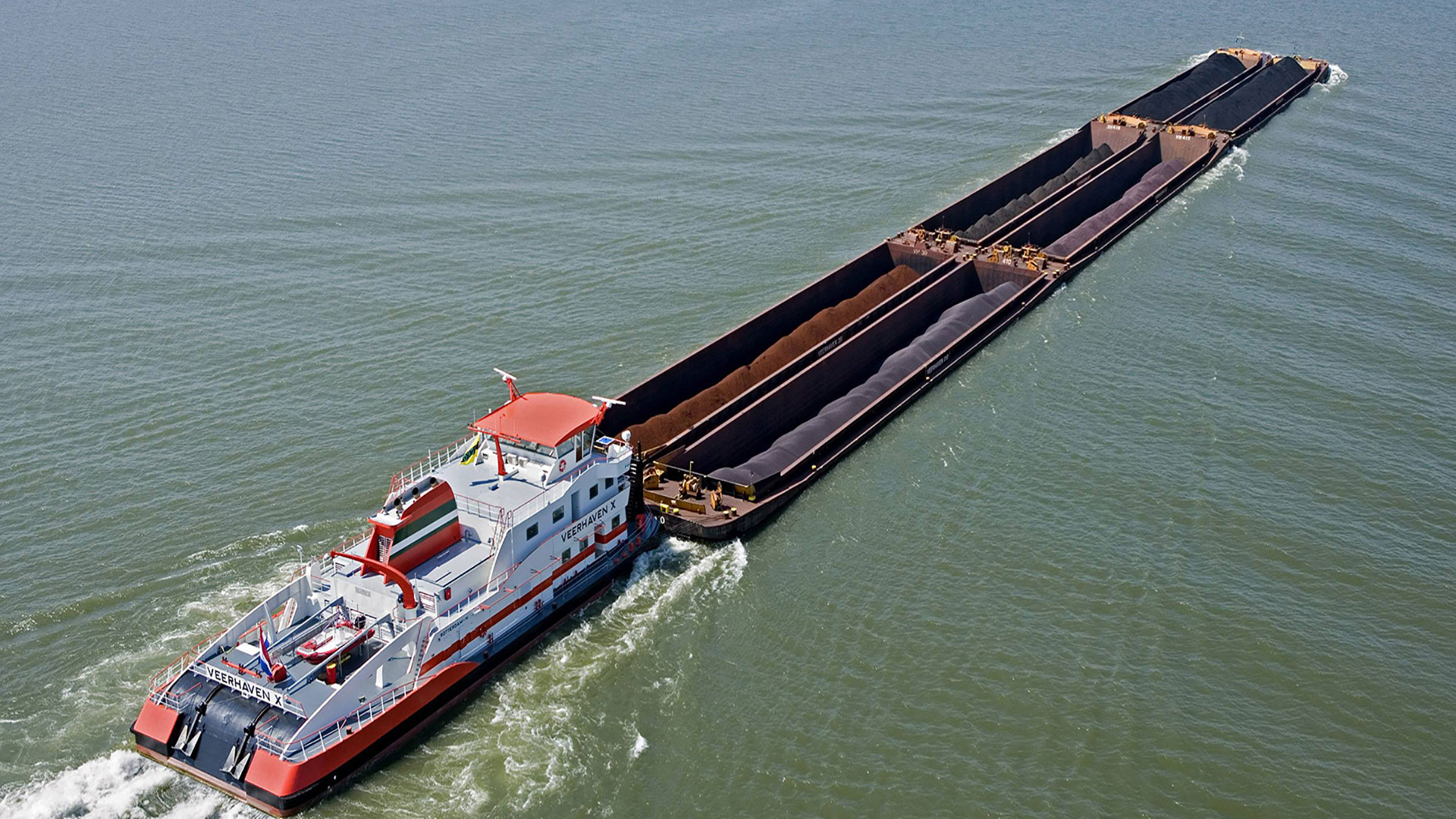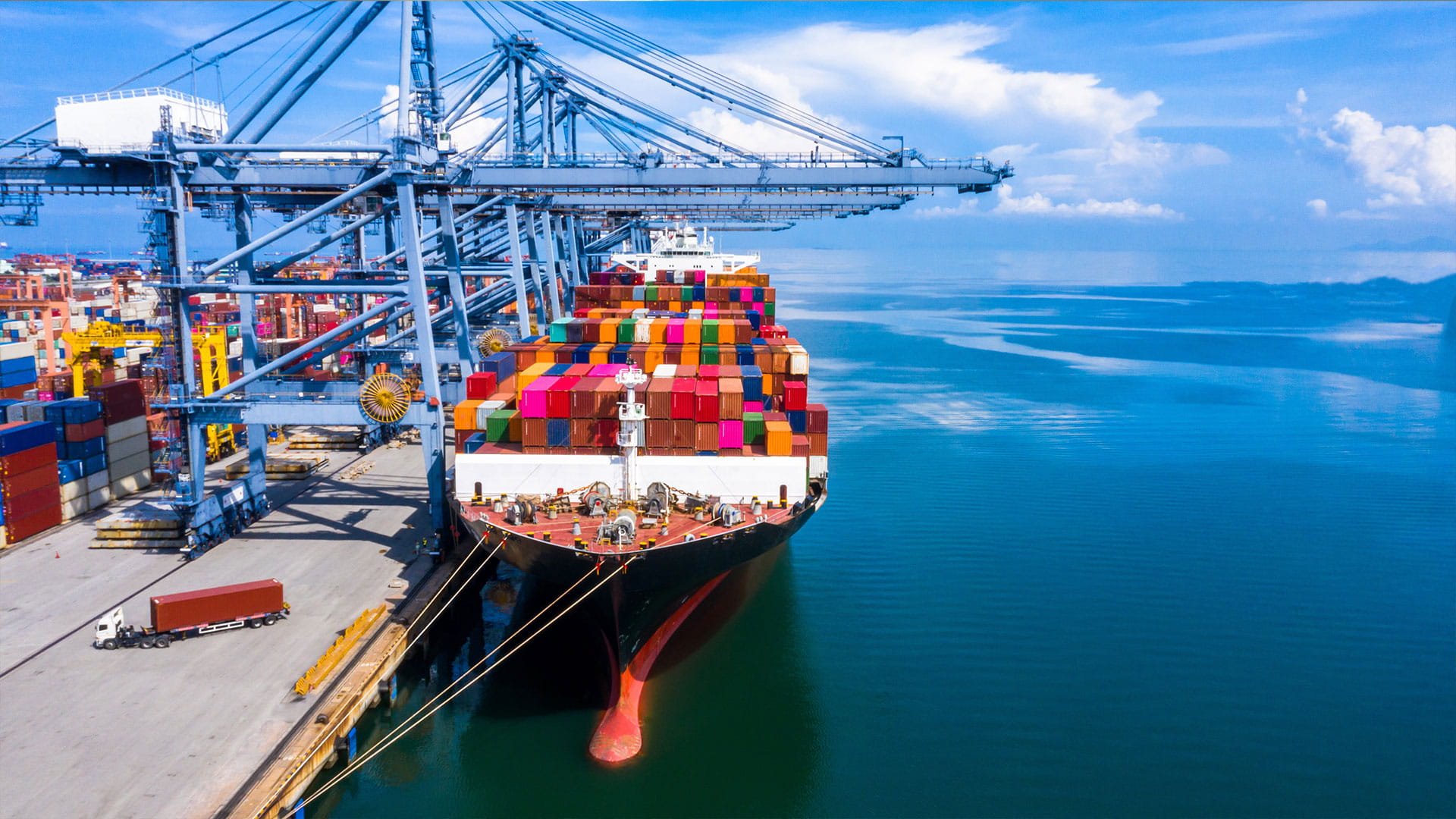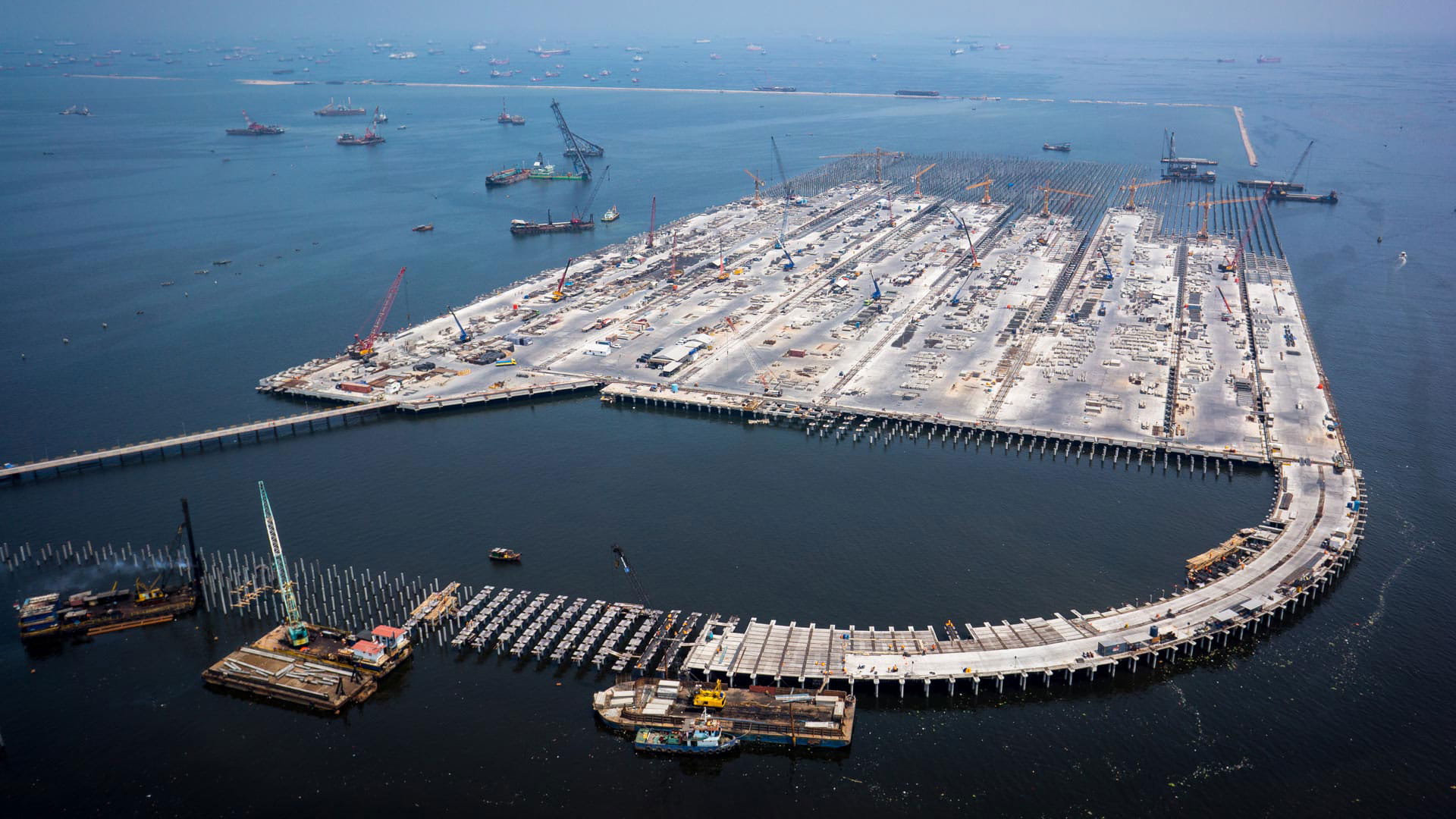Inland waterway transport

As society evolves and develops, new challenges will surface. The composition of commodities carried by barge is changing. It’s trending towards less bulk cargo of fossil-related raw materials, like oil, gas, and coal, and more containers, recycled products and cleaner propulsion systems.
We’re also seeing vessels themselves gradually become cleaner, with engines powered by electricity, alternative fuels, and hydrogen. The magic words here are: Green Ports and Smart Ports, both on the coast and – crucially – inland.
The modal shift from road to water
Moving cargo by road and rail can be costly and use a lot of energy. Shipping this cargo by water is more sustainable, cost efficient, and uses less energy per ton-kilometre – it’s also safer with a lower rate of accidents.
Inland waterway transport (IWT) is growing in popularity due to its high capacity and low cost – providing opportunities for cleaner, greener, and smarter ways to transport goods. But this infrastructure needs continuous maintenance and upgrades to keep pace with technological developments and changes in cargo flows.
Before beginning an IWT project, you need to understand how to achieve the right balance between adapting vessels to suit waterways and changing waterways to suit vessels. And having great consultants by your side can help you do just that.
Support for your green transport projects
At Royal HaskoningDHV, we have experience developing and optimising waterways for IWT worldwide. We’ve worked on everything from barge terminals to improving entire river systems. And by advocating for an integrated, multi-disciplinary approach to the decision-making process, we can help you get the most out of your specific project.
Our mission, enhancing society together, means we make our projects as sustainable as possible. We’re at the cutting edge of green transport, and can help you embrace alternative fuels, zero emission vessels, hydrogen vessels, and autonomous vessels to keep you compliant with ever-evolving regulations and keep energy costs down.
Our inland waterway transport capabilities
Our experts have the skills, knowledge, and experience to lead IWT projects at every phase. We’ll help you access the systems – like the River Information Service (RIS) and automatic identification system (AIS) – to optimise the transportation process, and make sure your project is feasible and sustainable throughout.
We can work with you to ensure your project is a success with our range of services, including:
• Surveys and investigations
• Master planning
• Cargo forecasting
• Modal Shift Scans
• Economic studies & economic feasibility studies
• Social and environmental impact assessment
• Planning, design and supervision of infrastructure, dredging, river training works and terminals
• Aids to navigations
• Institutional development and training
• Due diligence

Maritime challenges
To create future-proof maritime facilities that will continue to thrive for decades to come, you need a combined digital, sustainable, and climate resilient strategy.
Learn more about what we can do for you:

Our offerings
The drive to improve performance, energy efficiency, environmental standards and safety are ever present. Constraints over costs and timings add to the challenge. Find out how we can support with the challenges you are facing.
Discover why we’re the first port of call for:

Sectors we support
We are global maritime consultants specialised in the planning and design of marine facilities, ports and terminals, and shipyards.
Find out more about the sectors where we deliver our expertise:
